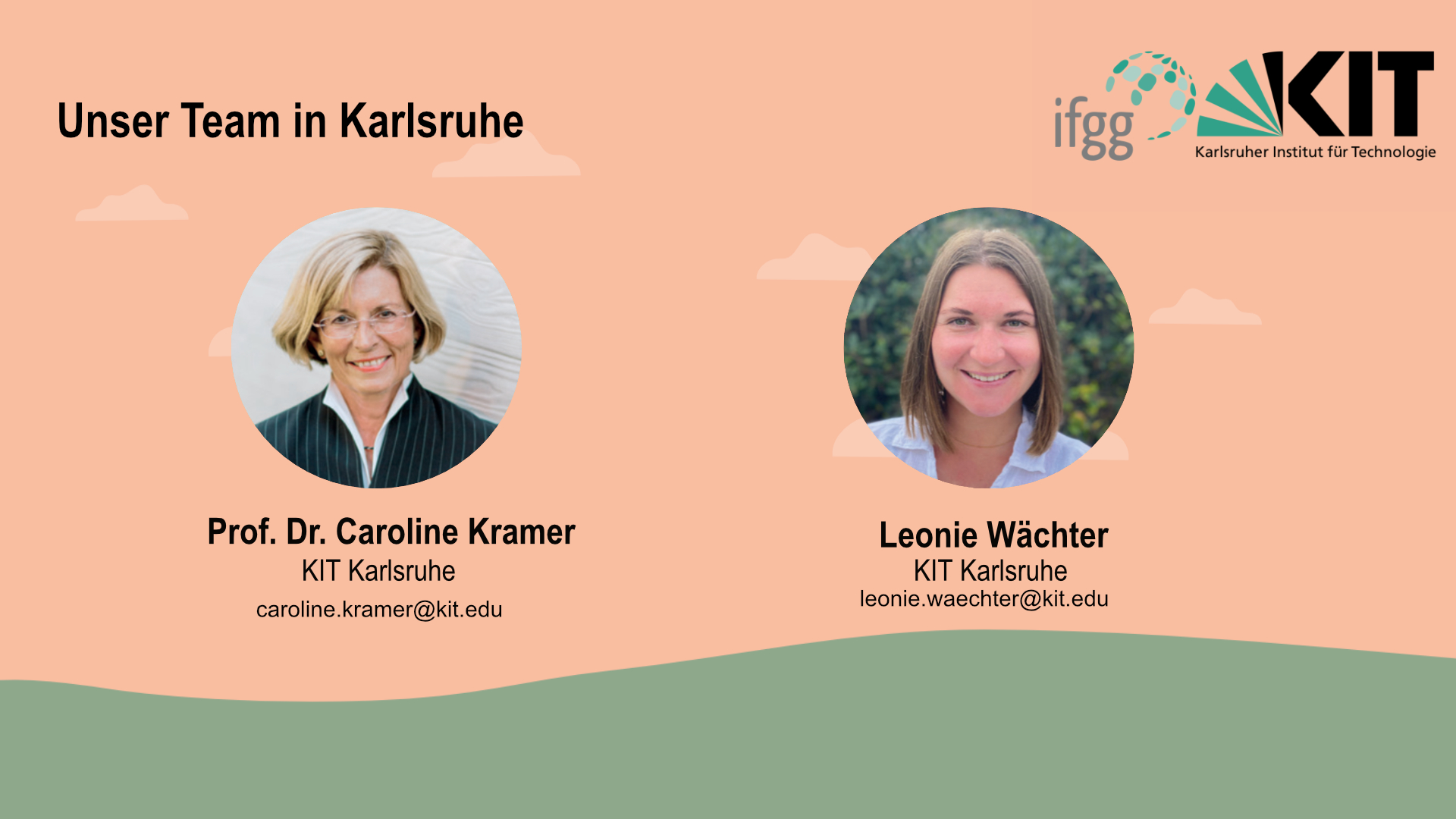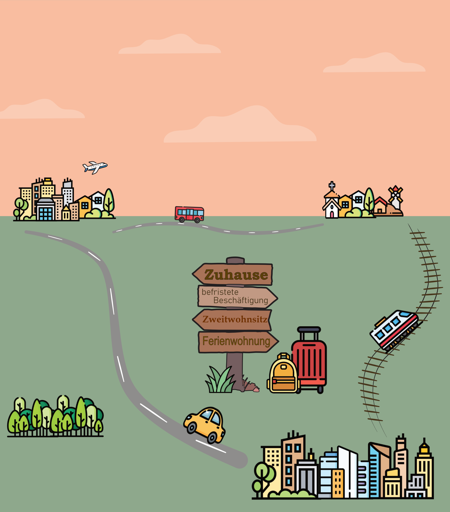Temporality of living. Places of emotional belonging and everyday practices
- Contact:
- Project Group:
- Funding:
Deutsche Forschungsgemeinschaft
- Partner:
Prof. Dr. Carmella Pfaffenbach (RWTH Aachen University)
Maya Willecke (RWTH Aachen University) - Startdate:
2022
- Enddate:
2025
Temporality of living and working

In general housing is as a more or less permanent, conceived both in everyday life as well as in scientific research. Fluctuation, limited duration of residence or multilocality (living in two or more places) have been adressed mainly in the metropolitan context.
What do we mean by “temporality”?
We call this limited duration of residence or living in multiple locations “temporality of living.” We assume that this phenomenon is often related to the fact that people live “temporarily” in the respective locations due to their temporary employment contracts or their training (internships, studies). So the research project, which is financed by the German Research Foundation, is called “Temporality of Living and Working”.
Where do many “temporary people” live?
Until now is assumed that people in small and medium-sized towns in the surrounding areas of large cities are staying longer in their residence, have lower fluctuation and we find lower proportions of people living multi-locally. In this project we will critically question these assumptions. Rather, we assume that the temporality of living is not an exclusively big city or inner-city phenomenon, but can also be observed in suburban locations because the world of work has changed generally and everywhere.
What does everyday life in “temporary living” look like?
So far, very little is known about people who live temporarily, not least because they are not easy to reach. However, since this group is becoming larger and it is important to know or belong totheir everyday lives and their needs, we would like to survey them and their neighborhood on this topic. We are interested, for example, in where they feel at home or belong to and why, whether they have had experiences with temporary living and working conditions earlier in their lives, how they evaluate this temporary life, whether they see this life as a compromise and much more.
“Temporary residents” in the neighborhood?
But we are also interested in how people fundamentally evaluate this phenomenon, even if they themselves live in the place permanently. Do they notice that there are people living temporarily in their neighborhood? Are family members perhaps temporarily in another place (this could also be their own holiday home) and has anything changed due to rapid digitalization?
In which locations do we survey for our project?
We selected the two large cities of Frankfurt with the surrounding communities of Hofheim am Taunus and Neu-Isenburg and Leipzig with Schkeuditz and Taucha as the study locations. The postal surveys took take place in spring 2023. For this purpose, a questionnaire was sent to a total of 10,000 residents, which was also available online and was also offered there in English and Turkish.
In addition, the project team at RWTH Aachen is able to deepen this topic in individual interviews and thus address many other aspects.
Publications
Wächter, L. (2025, Juni 2). Temporalität des Wohnens und Arbeitens: Eine quantitative Analyse der Muster und Dynamiken temporärer Lebensrealitäten in den Großstadtregionen Frankfurt am Main und Leipzig. Dissertation. Karlsruher Institut für Technologie (KIT).
Wächter, L., Kramer, C. (2025). New ways of working and residing: Towards temporary arrangements in large city regions in Germany. Applied Geography, 178, Article no: 103592.
Wächter, L. (2024). Active, passive and hybrid multilocal living practices - towards a classification. Journal of Housing and the Built Environment, 40(1), 43-64.
Wächter, L. (2024). Beyond permanent residences: measuring place attachment in tempo-local housing arrangements. Urban Science, 8(4), Article no: 173.
Willecke, M., & Wächter, L. (2024). Unveiling her perspective: exploring women's multi-local living arrangements in German cities. Women's Studies International Forum, 107, Article no: 103004.


